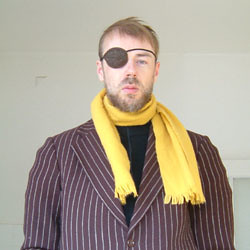Moord in het Nudistenkamp (Eng: Murder at the Nudist Camp)
Honey West is a fictional character created by Gloria and Forest Fickling under the pseudonym “G.G. Fickling” and appearing in numerous mystery novels by the duo.
The character is notable as being one of the first female private detectives in popular fiction. She first appeared in the 1957 book This Girl for Hire and would appear in 10 novels before being retired in 1971. The character was also the basis for the short-lived TV series Honey West in the 1960s.
More Honey West here, from a fine collection of Dutch translations of detective novels. Probably the paratext (in this case the cover illustration) is better than the text itself.
Previously on Eye Candy.


